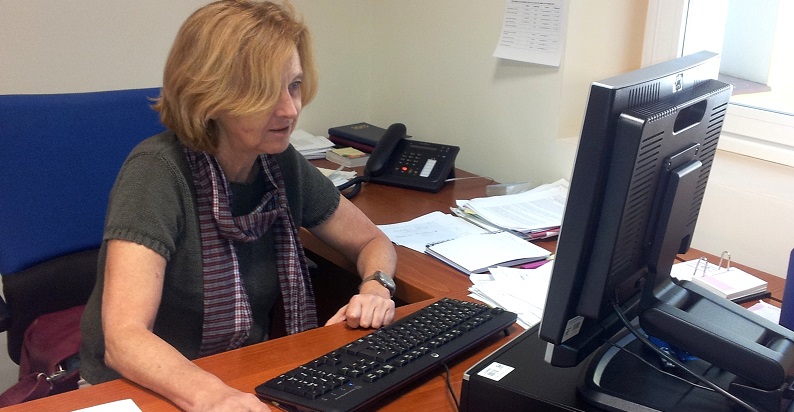-
30 July 2014
Category : Opinion
“Infectious diseases do not respect borders”
Entrevista a la Directora de Formación del proyecto mediPIET, Mariví Martínez.Interview with the Training Director for the mediPIET project, Mariví Martínez.

Fighting biological threats from infectious diseases has become a priority objective in the Mediterranean region. Here, for example, there are diseases like polio which are intensifying at a time when they were thought to be in the eradication phase. To achieve this objective, the mediPIET project was launched, which aims to strengthen health security in 18 countries in the Mediterranean region by training local epidemiologists. This project is being led by the FIIAPP and the National Epidemiology Centre of the Carlos III Institute(CNE-ISCIII). The partners in this project are Albania, Armenia, Algeria, Bosnia Herzegovina, Egypt, Georgia, Jordan, Kosovo, Lebanon, Libya, Macedonia, Morocco, Moldavia, Montenegro, Palestine, Serbia, Tunisia and Ukraine.
The Training Director for the project, Mariví Martínez, details the biological threats and where they are coming from. She also breaks down the content of the training offered to the epidemiologists who are the beneficiaries of this project. Detection and investigation are the pillars.
What is the biological threat in terms of the Mediterranean region?
Biological threats are understood to mean the risk of contracting infectious diseases, especially those transmitted person-to person, through animals or vectors (animals that transmit pathogens, including parasites) such as mosquitoes. Currently there are specific diseases in the region such as malaria, coronavirus, West Nile virus, new outbreaks of polio… in addition to others that are preventable through vaccination. But the main issue now is infectious diseases that do not respect borders, and less so now with the tremendous mobility of populations, foods… and it’s very easy for them to be cross over from one side to the other. The situations of humanitarian crisis that are affecting more of these countries every day are creating displaced populations, erupting in health systems and increasingly spreading the risk of infectious diseases more widely and diminishing the capacity of countries to respond.
Does this make creation of this programme necessary?
Yes. The need for training professionals has been recognized because capacities are uneven in different countries, but in general, specialized resources are lacking and needs are growing. These training programmes are designed to train people specifically in these subjects.
The professionals participating in the Epidemiology Training Programme oriented towards Public Health Intervention, what will they contribute?
Epidemiological research is oriented towards disease control. Its main feature is that professionals, in addition to receiving theoretical-practical modules, will be trained through hands-on service in public health epidemiology units and supervised directly by experts. As this is a regional programme and public health problems are now global, coordination to achieve standard criteria and methodology and collaboration between countries is essential for halting epidemics. It offers an exchange of capacities between countries and teamwork in a network of trained professionals who can be easily mobilized if necessary in the event of a threat or special disaster.Because it is understood that each of the MediPIET partners has its own national threat disruption protocol…
All public health system have a series of action protocols to address certain diseases, but, apart from these, epidemiology is a science oriented towards detecting, investigating and assessing the risks of each potential health threat and investigating how they are transmitted and which populations are affected to ensure that intervention measures are based on scientific data. To do this, as countries, we need to get up to speed with new tools, new methods, and their everyday and standardized application worldwide.
What does the Spanish Field Epidemiology Programme (PEAC), developed by the CNE-ISCIII, represent?
This programme was the first with these characteristics to be implemented in Europe, with the support of the Ministry of Health and Consumer Affairs, to standardize all the surveillance criteria and so that all of us professionals would be speaking the same language, using the same methods and expanding our knowledge on the ground. Our work means contributing our experience in these types of programmes and advising the FIIAPP on the technical and scientific aspects required to orient the training.
Are the trainers working on this project going to be local?
As much as possible, yes. It’s much better for them to be the people with the greatest knowledge of the problems at a national and local level, that they know the cultural customs and their own health systems, than to use external professionals. In addition, they will be the ones who will have to maintain and develop it.
The views and opinions expressed in this blog are the sole responsibility of the person who write them.




